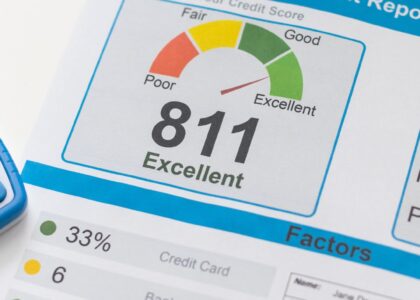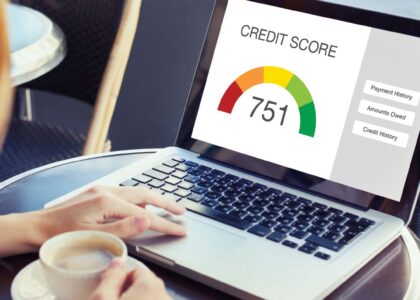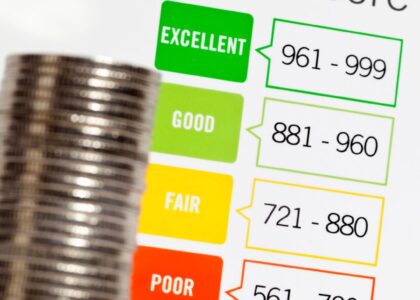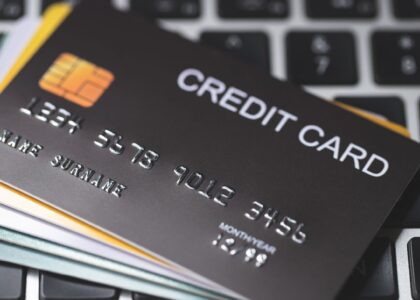No system is error-proof, despite all of the wonderful technology that is at our disposal today. Mistakes occur in every sector of business. And it also applies to the businesses that create our credit reports. You may learn more about your credit report on this blog, including how to fix any inaccuracies.
Living a happy financial life depends on your credit health, so keep reading to find out the facts and discover what to do if your credit report contains inaccuracies.
How Do Credit Reports Work?
Have you ever financed a car purchase, rented a house, or gotten a loan? You have a credit report, just like almost every other American consumer.
Consider credit reports as the narrative of our interaction with debt. It lists all of your open accounts, the amounts you owe, and how frequently you make payments.
A Credit Bureau: What Is It?
The data on reports is provided by creditors and lenders, and it is collated and examined by entities known as credit bureaus.
These bureaus are the purest form of credit reporting companies. They develop algorithms using data about our past spending patterns to forecast our financial behavior in the future.
For American customers, Equifax, Experian, and TransUnion are the three main bureaus. Although there are other credit bureaus, the majority of creditors and lenders look to these three firms when making financing decisions.
A credit bureau operates in accordance with the Fair Credit Reporting Act’s rules as a debt reporting business (FCRA). Accuracy, fairness, and privacy are ensured by this Act while managing and disclosing personal financial information. The FCRA also ensures that you can see your credit report and permits at least one free copy from each of the three major bureaus.
How Does Your Credit Report Look?
PAYMENT HISTORY
All of your late and on-time payments to your creditors are listed in your payment history. Your payment history is a crucial component of your credit report since it provides prospective lenders with a clear picture of your capacity to make timely loan repayments.
A credit bureau operates in accordance with the Fair Credit Reporting Act’s rules as a debt reporting business (FCRA). Accuracy, fairness, and privacy are ensured by this Act while managing and disclosing personal financial information. The FCRA also ensures that you can see your credit report and permits at least one free copy from each of the three major bureaus.
The greatest method to safeguard your payment history is to consistently make on-time payments on your obligations. Normally, late payments that are 30 days or more past their due date are reported by creditors and bill collectors. If you anticipate being late with a payment, get in touch with your creditor ahead of time to arrange a payment schedule that will work for you.
CREDIT UTILIZATION
Credit Utilization quantifies how much of your available credit you have really used. Consider the case where you have a card with a $1,000 limit. At the end of the month, you have $200 in your account. Your utilization is 20% as a result.
The only factor that weighs more heavily on your report than payment history is credit overuse. It aids lenders in assessing the risk involved in doing business with you. If you have a high credit usage rate, it means you frequently use credit while not making timely payments on it. According to experts, you should keep your usage at or below 30% to continue attracting creditors.
CREDIT HISTORY
Your current accounts are listed in your credit history. Lenders can determine that you can manage a line of credit and are likely to do so with another loan if you have a long history and a good payment history.
Managing credit history can be challenging because your oldest account is where you have the most leverage. Many people think about shutting the account and canceling the card after paying off a lengthy debt on a revolving line of credit (such a credit card). However, closing your oldest account will reduce the length of your history. Therefore, rather than deleting your card when you pay it off, think about keeping it and using it less.
NEW CREDIT
Additionally, information about each time you apply for a new credit line will be included in your credit report. Don’t apply for any other cards or loans prior to taking out a loan for a large buy if you are considering it. Every time you apply for credit, the lender contacts one or more of the bureaus to learn more about the specifics of your reports.
A big number of queries on your report, especially in a short period of time, may indicate that you are actively hunting for several lines of credit and may even be in financial difficulties to a prospective creditor or lender.
CREDIT MIX
Your credit mix is the range of accounts you have. An excellent combination, for instance, would be a car loan and a credit card as they are two distinct forms of credit that you handle differently. The ability to consistently make timely payments of all kinds is beneficial but not necessary for maintaining a good report.
Credit Score:
Each of these factors on your credit report carries a different amount of weight:
Payment History – (35%)
Credit Utilization – (30%)
Credit History – (15%)
New Credit – (10%)
Credit Mix – (10%)
The data is subsequently compiled by the bureaus, who then determine your credit score. Based on the conduct described in your report, a credit score is a three-digit number that serves as an evaluation of your creditworthiness. Credit scores range from 300-850:
- 300–499 Very Bad
- 500–600 Bad
- 601–660 Fair
- 661–780 Good
- 781–850 Excellent
And keep in mind that you can have three separate scores because each of the three major credit bureaus publishes a report on you. When you start routinely checking your credit, you’ll also see that these scores might update at various intervals.
Better than having terrible credit is having good credit. With a strong score, you can get approved for more credit cards and loans with manageable terms and fair interest rates. Many creditors and lenders may consider you to be risky if you have a low credit score. Although there are acceptable installment loans for those with bad credit, the restrictions are harsher than with conventional loans.
Because many areas of your financial life are based on your score, your report must have accurate information.
How to Correct Mistakes in Credit Reports
Review each of the three major bureaus’ reports once you get access to yours. Each credit bureau has its own procedures and techniques that could (and probably will) provide various findings and conclusions. Thus, just because there are no errors on one or two credit reports does not imply that all of the reports are accurate.
The actions you should take to have inaccuracies on your credit report corrected are as follows:
Contact The Credit Bureau To Contest The Information
If you discover mistakes on your credit report, you can formally challenge them with fresh evidence by filing a dispute. Any disagreement should be documented in writing along with a justification for the error. Your contact details and the tracking or I.D. the number for the account in question should also be included in your dispute letter.
Our passion for helping people fix their credit and our customer-first focus have propelled the company’s success. We will improve your scores not only because we want to see you succeed, but also because our reputation relies on it. Give us a call and we can get started right away.





